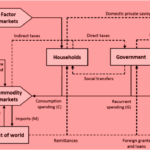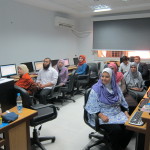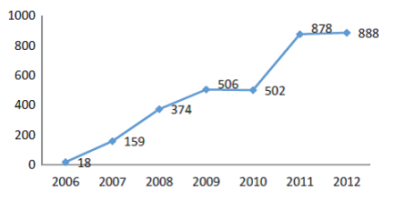Fatma Abdelaziz and Yasmine Mandour- Development Strategy and Governance Division, IFPRI. The conventional development thinking is to provide countries with what they lack, such as financial resources and sound institutions. A more viable and sustainable approach often is to build on and enhance existing strengths. As the new Egypt is on mission to foster job-creating […]
Publication: Nutrition and economic development: Exploring Egypt’s exceptionalism and the role of food subsidies
Egypt faces two nutritional challenges. The first is the “growth-nutrition disconnect.” High economic growth has not been accompanied by reduction in chronic child malnutrition, at least throughout the 2000s. Instead, the prevalence of child stunting increased during this decade—an atypical trend for a country outside wartime. The second challenge is the simultaneous presence of chronic undernutrition and overnutrition (due to excess consumption of calories).
Publication: A disaggregated social accounting matrix – 2010/11 for policy analysis in Egypt
The availability of comprehensive and coherent socio-economic data is an essential requirement for the development, implementation, and assessment of any national strategic plan, like Egypt’s Sustainable Development Strategy 2030. Social accounting matrices (SAMs) combine many datasets produced by statistical agencies and national institutions – such as Central Banks and Ministries of Finance and Agriculture – […]
News: Building datasets as the basis for sound policy making in Egypt: the case of CAPMAS-IFPRI collaboration
Perrihan Al-Riffai, Sr. Research Analyst, Development Strategy and Governance Division, IFPRI. Many people in Egypt these days think about the best ways for getting the economy back on track, how to create jobs and how to cushion the inevitable side-effects of the exchange rate devaluation, value added taxes, subsidies and other reforms. So the issue […]
News: Are Egyptian Exports Being Restricted?
By Hoda El-Enbaby (Senior Research Assistant, IFPRI) and Chahir Zaki (Assistant Professor, Department of Economics, Faculty of Economics and Political Science, Cairo University) Countries generally have high incentives to protect their people from all different types of risks that can affect them. Yet, in some instances, this protection comes at other costs. In terms of […]





